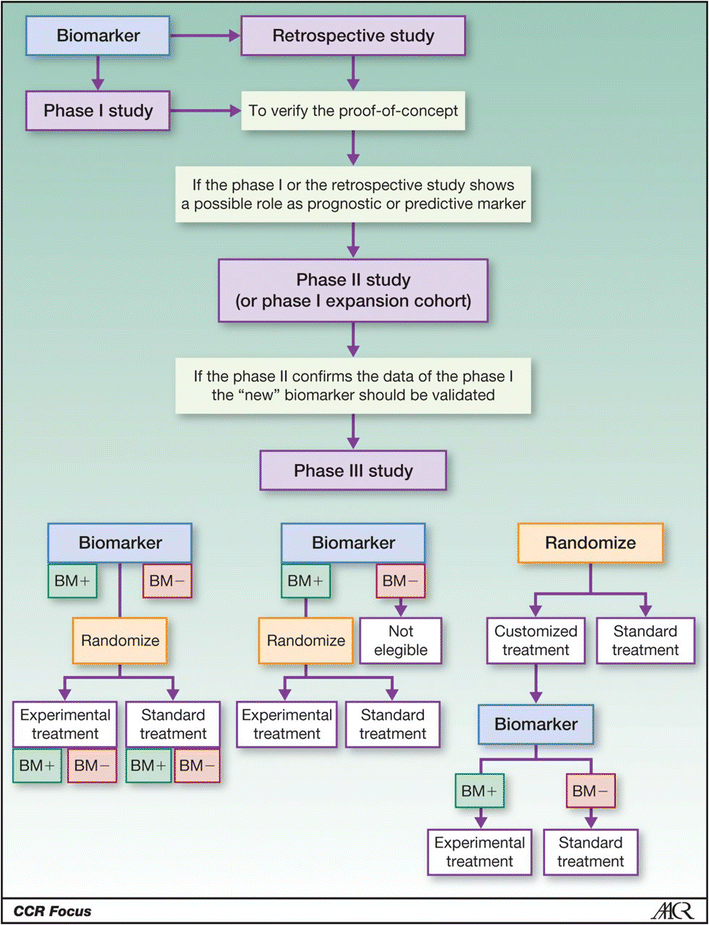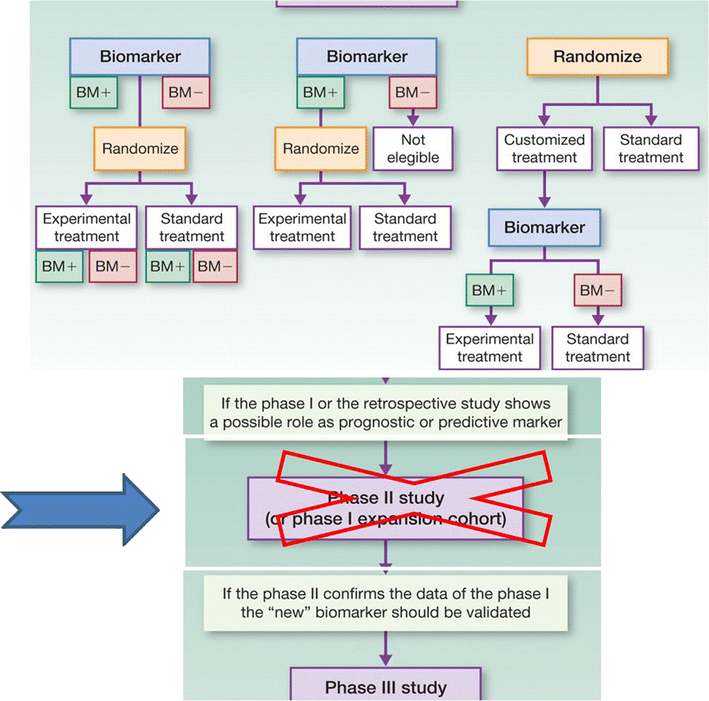The need for a network to establish and validate predictive biomarkers in cancer immunotherapy
- PMID: 29100546
- PMCID: PMC5670700
- DOI: 10.1186/s12967-017-1325-2
The need for a network to establish and validate predictive biomarkers in cancer immunotherapy
Abstract
Immunotherapies have emerged as one of the most promising approaches to treat patients with cancer. Recently, the entire medical oncology field has been revolutionized by the introduction of immune checkpoints inhibitors. Despite success in a variety of malignancies, responses typically only occur in a small percentage of patients for any given histology or treatment regimen. There are also concerns that immunotherapies are associated with immune-related toxicity as well as high costs. As such, identifying biomarkers to determine which patients are likely to derive clinical benefit from which immunotherapy and/or be susceptible to adverse side effects is a compelling clinical and social need. In addition, with several new immunotherapy agents in different phases of development, and approved therapeutics being tested in combination with a variety of different standard of care treatments, there is a requirement to stratify patients and select the most appropriate population in which to assess clinical efficacy. The opportunity to design parallel biomarkers studies that are integrated within key randomized clinical trials could be the ideal solution. Sample collection (fresh and/or archival tissue, PBMC, serum, plasma, stool, etc.) at specific points of treatment is important for evaluating possible biomarkers and studying the mechanisms of responsiveness, resistance, toxicity and relapse. This white paper proposes the creation of a network to facilitate the sharing and coordinating of samples from clinical trials to enable more in-depth analyses of correlative biomarkers than is currently possible and to assess the feasibilities, logistics, and collated interests. We propose a high standard of sample collection and storage as well as exchange of samples and knowledge through collaboration, and envisage how this could move forward using banked samples from completed studies together with prospective planning for ongoing and future clinical trials.
Figures


References
-
- Masucci GV, Cesano A, Hawtin R, Janetzki S, Zhang J, Kirsch I, Dobbin KK, Alvarez J, Robbins PB, Selvan SR, et al. Validation of biomarkers to predict response to immunotherapy in cancer: volume I—pre-analytical and analytical validation. J Immunother Cancer. 2016;4:76. doi: 10.1186/s40425-016-0178-1. - DOI - PMC - PubMed
-
- Dobbin KK, Cesano A, Alvarez J, Hawtin R, Janetzki S, Kirsch I, Masucci GV, Robbins PB, Selvan SR, Streicher HZ, et al. Validation of biomarkers to predict response to immunotherapy in cancer: volume II—clinical validation and regulatory considerations. J Immunother Cancer. 2016;4:77. doi: 10.1186/s40425-016-0179-0. - DOI - PMC - PubMed
-
- Galon Jerome, Mlecnik Bernhard, Marliot Florence, Fang-Shu Ou, Bifulco Carlo Bruno, Lugli Alessandro, Zlobec Inti, Rau Tilman T, Hartmann Arndt, Masucci Giuseppe V, et al. Validation of the Immunoscore (IM) as a prognostic marker in stage I/II/III colon cancer: Results of a worldwide consortium-based analysis of 1,336 patients. J Clin Oncol. 2016;34:3500.
Publication types
MeSH terms
Substances
Grants and funding
LinkOut - more resources
Full Text Sources
Other Literature Sources
Research Materials

